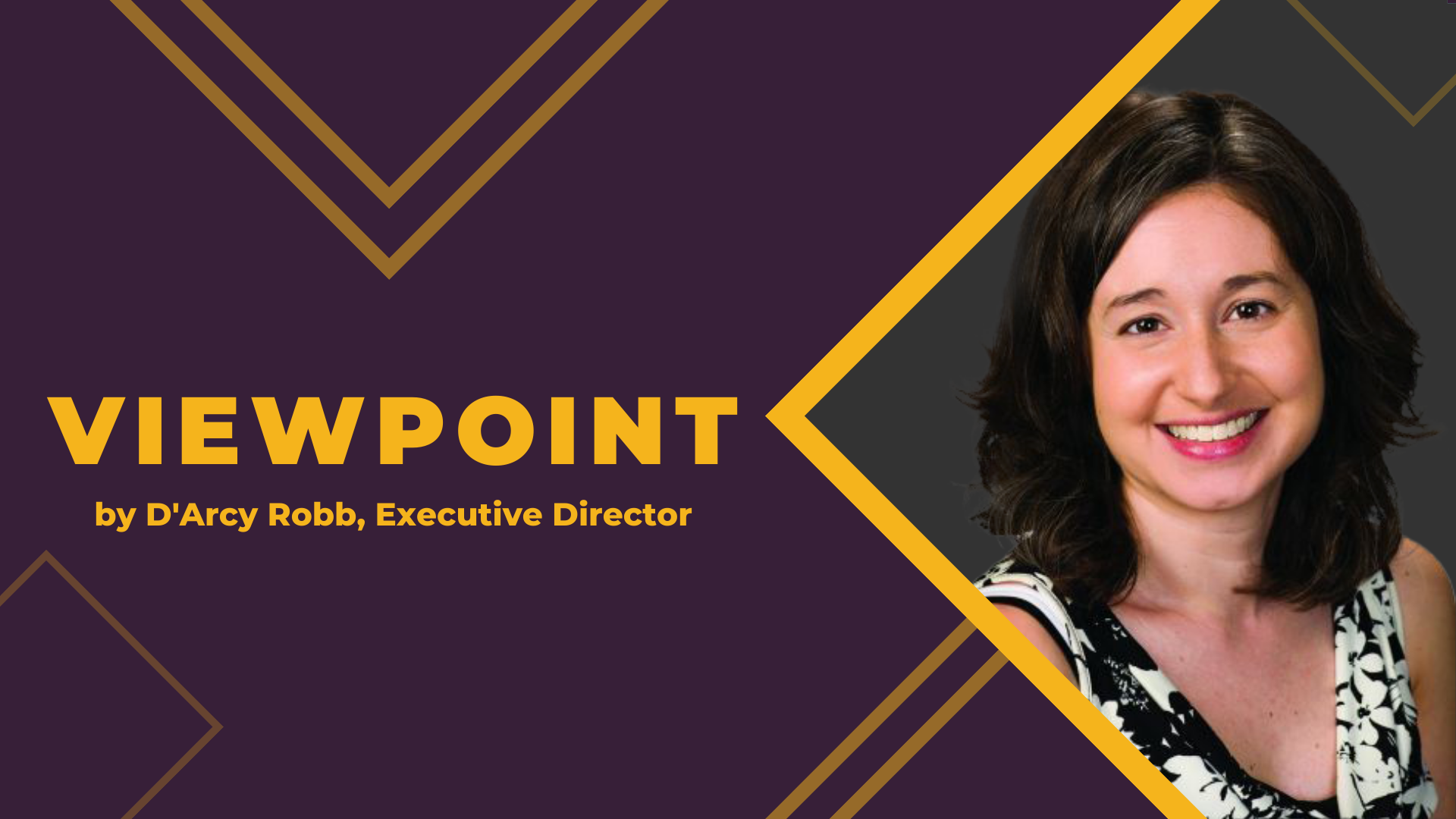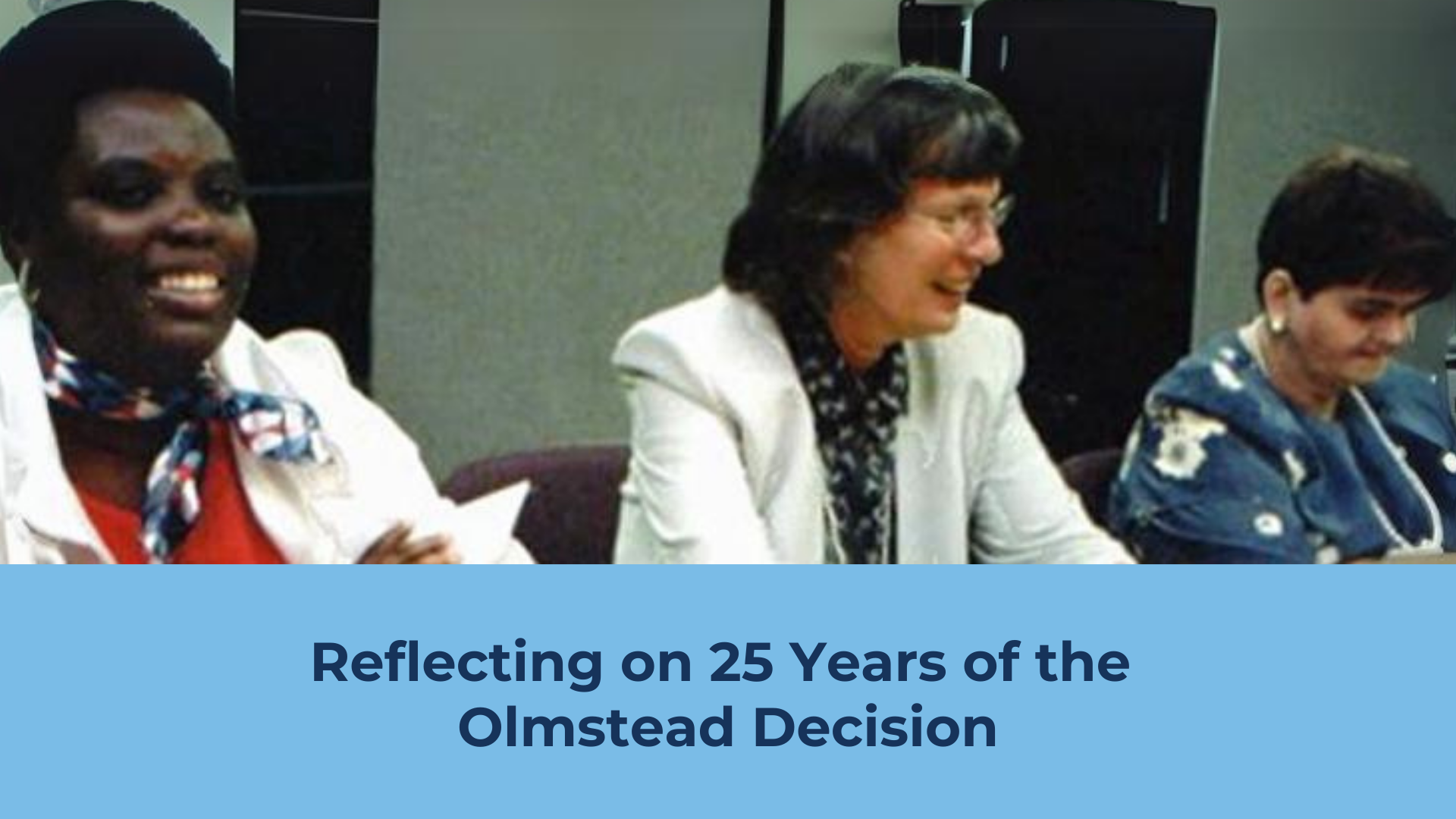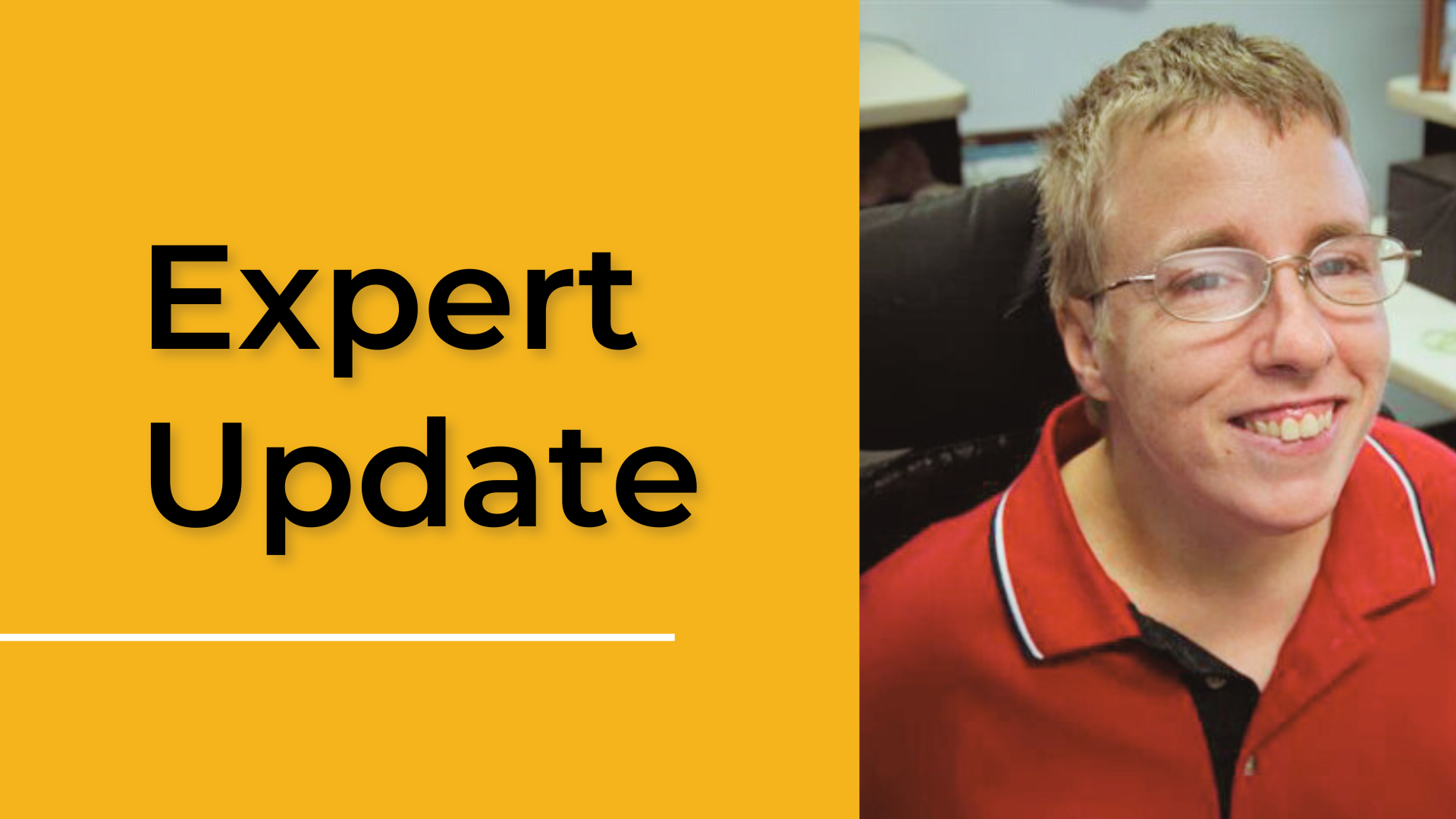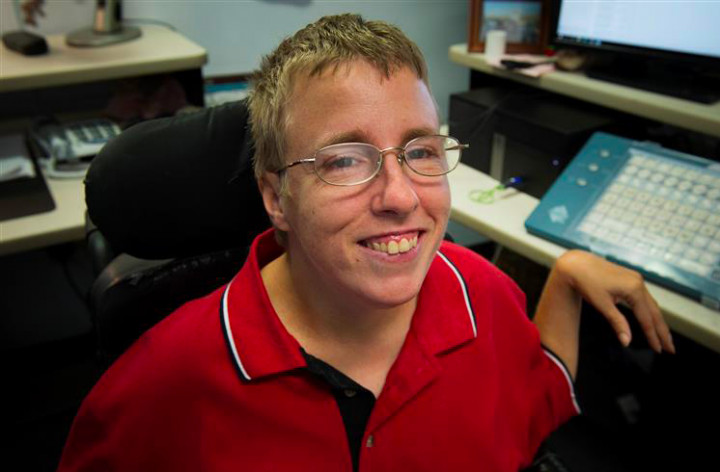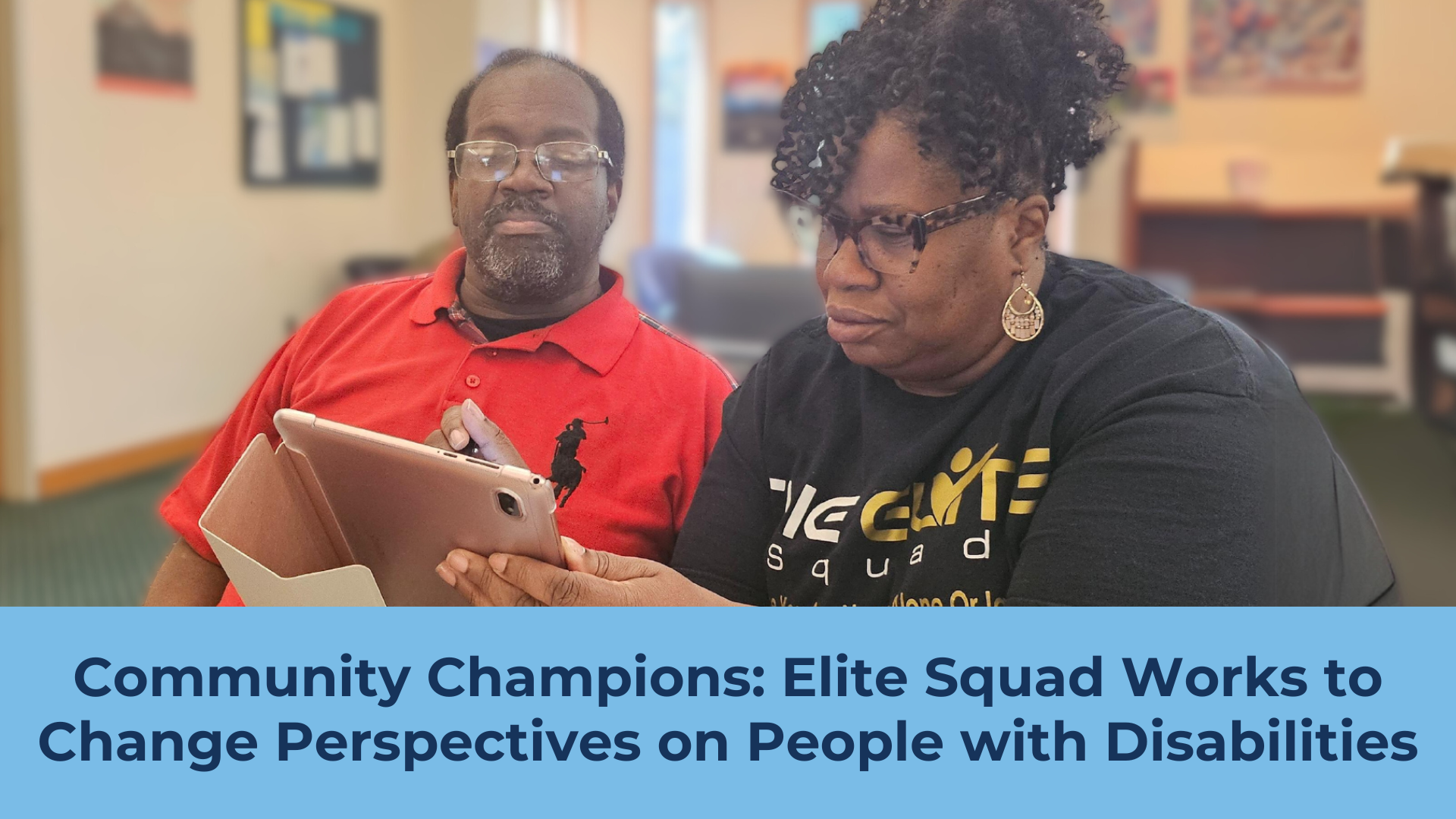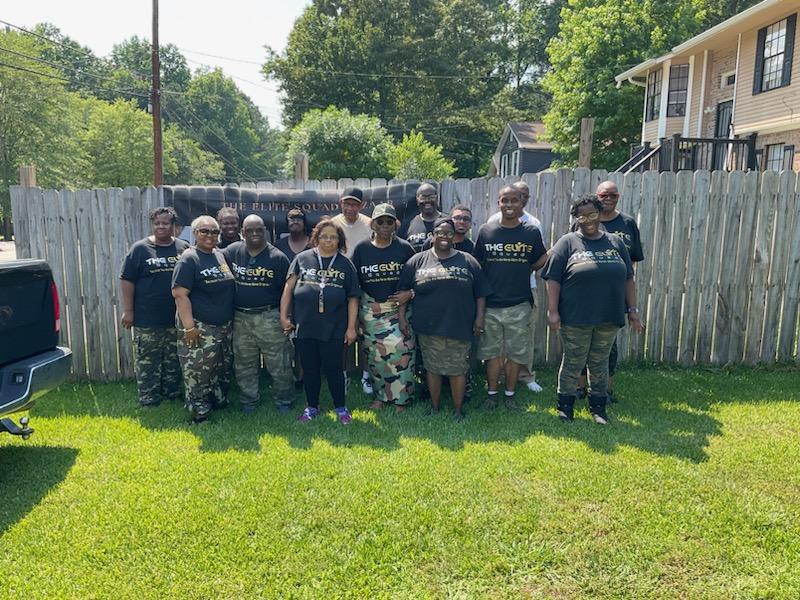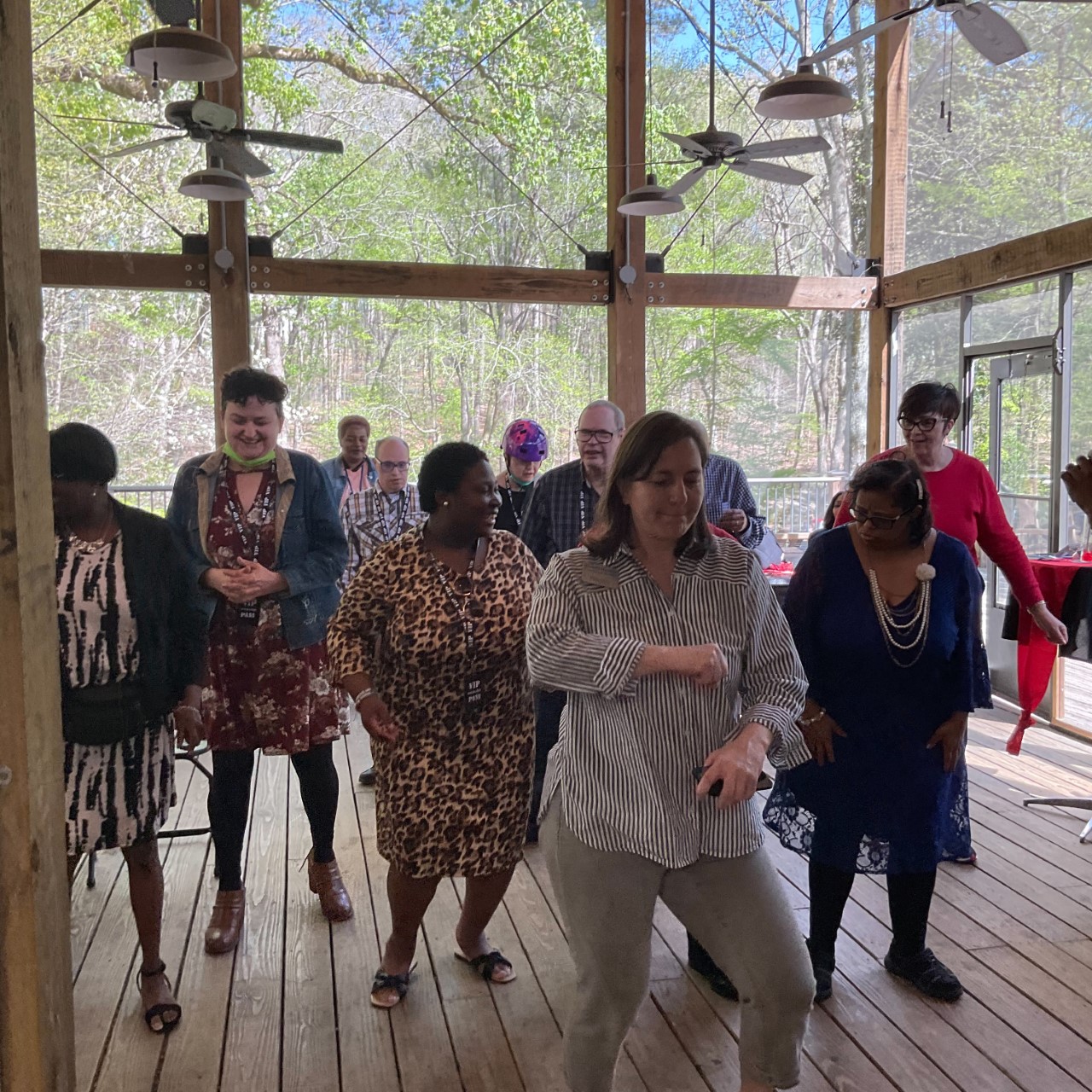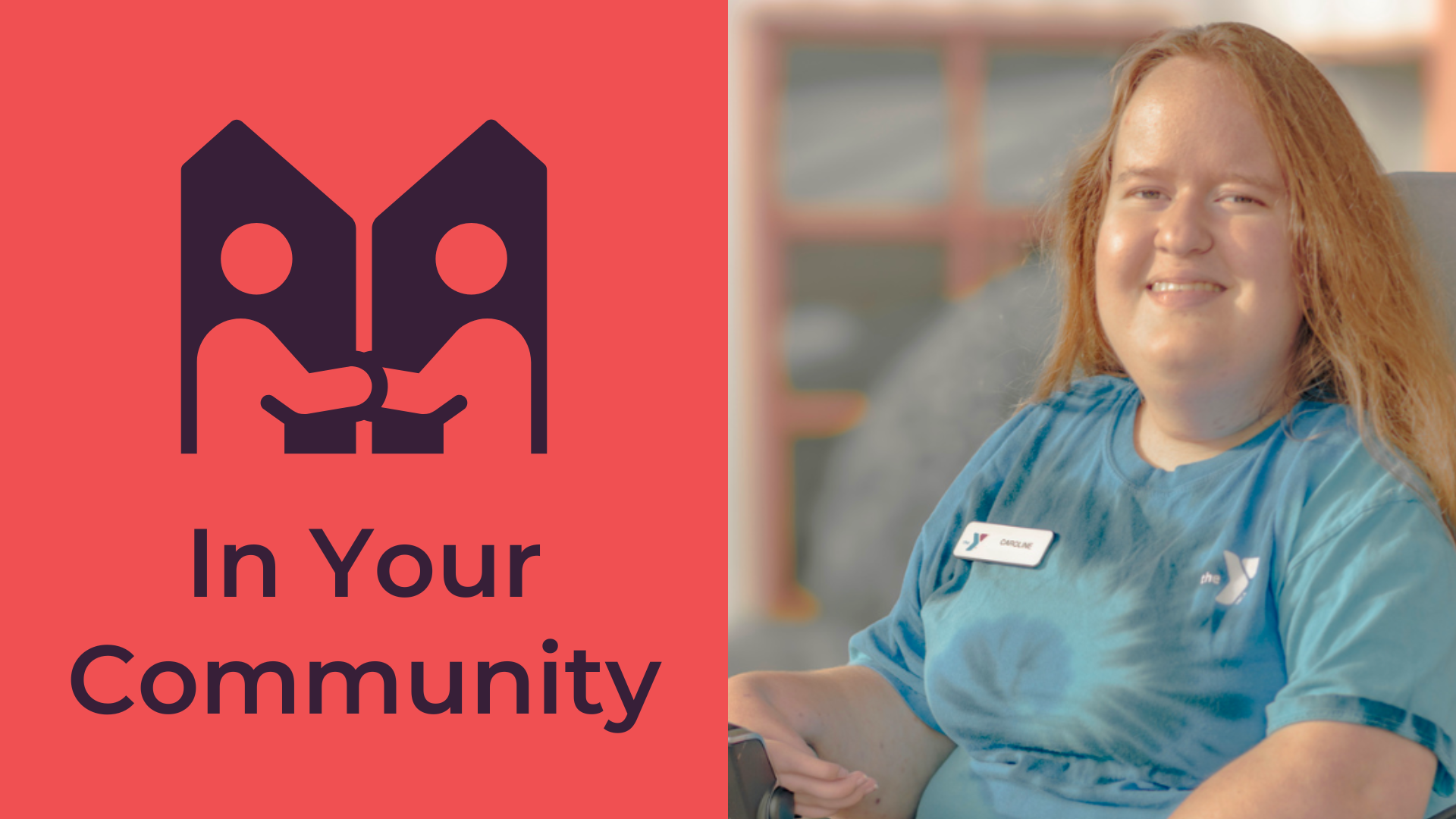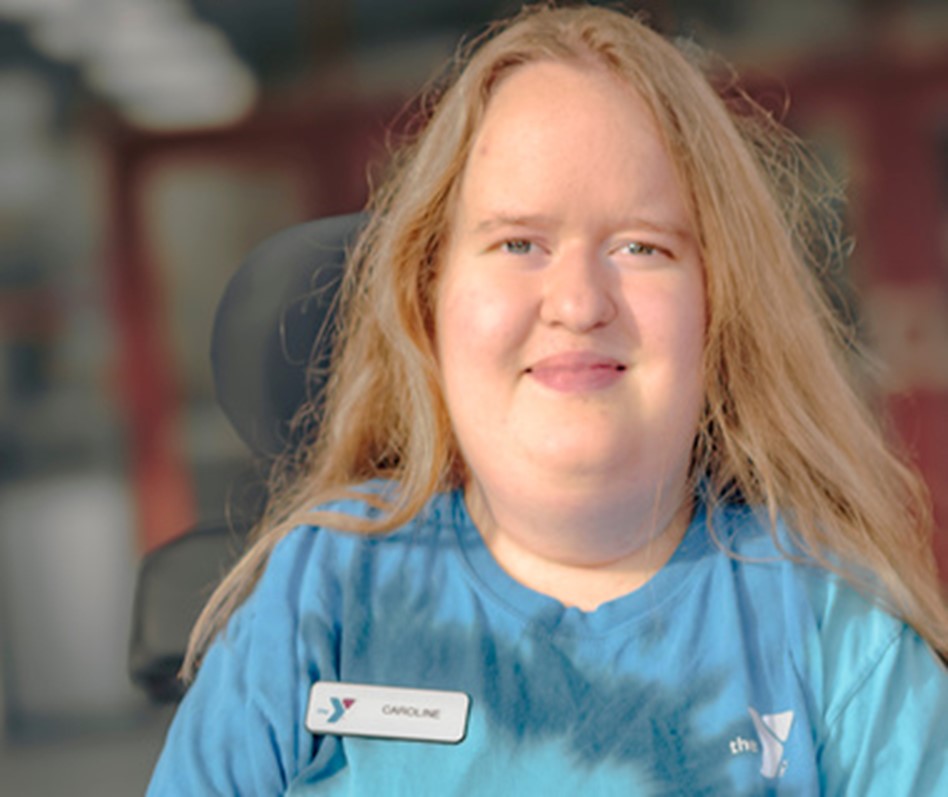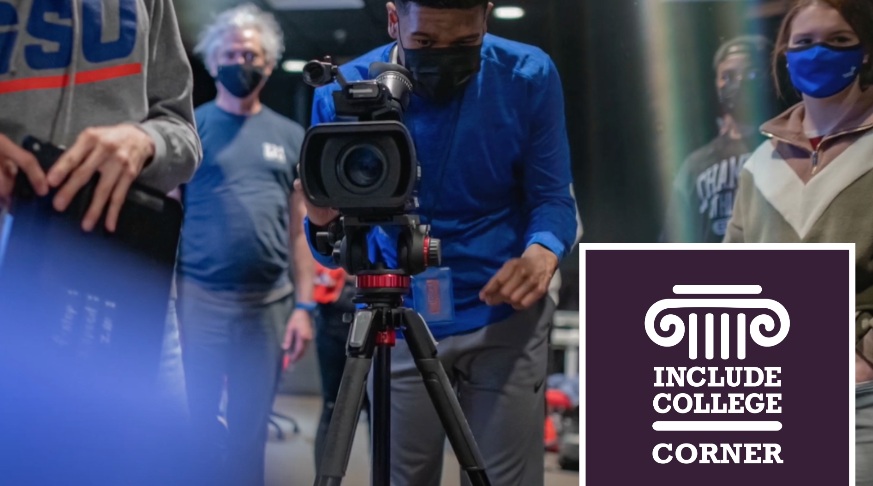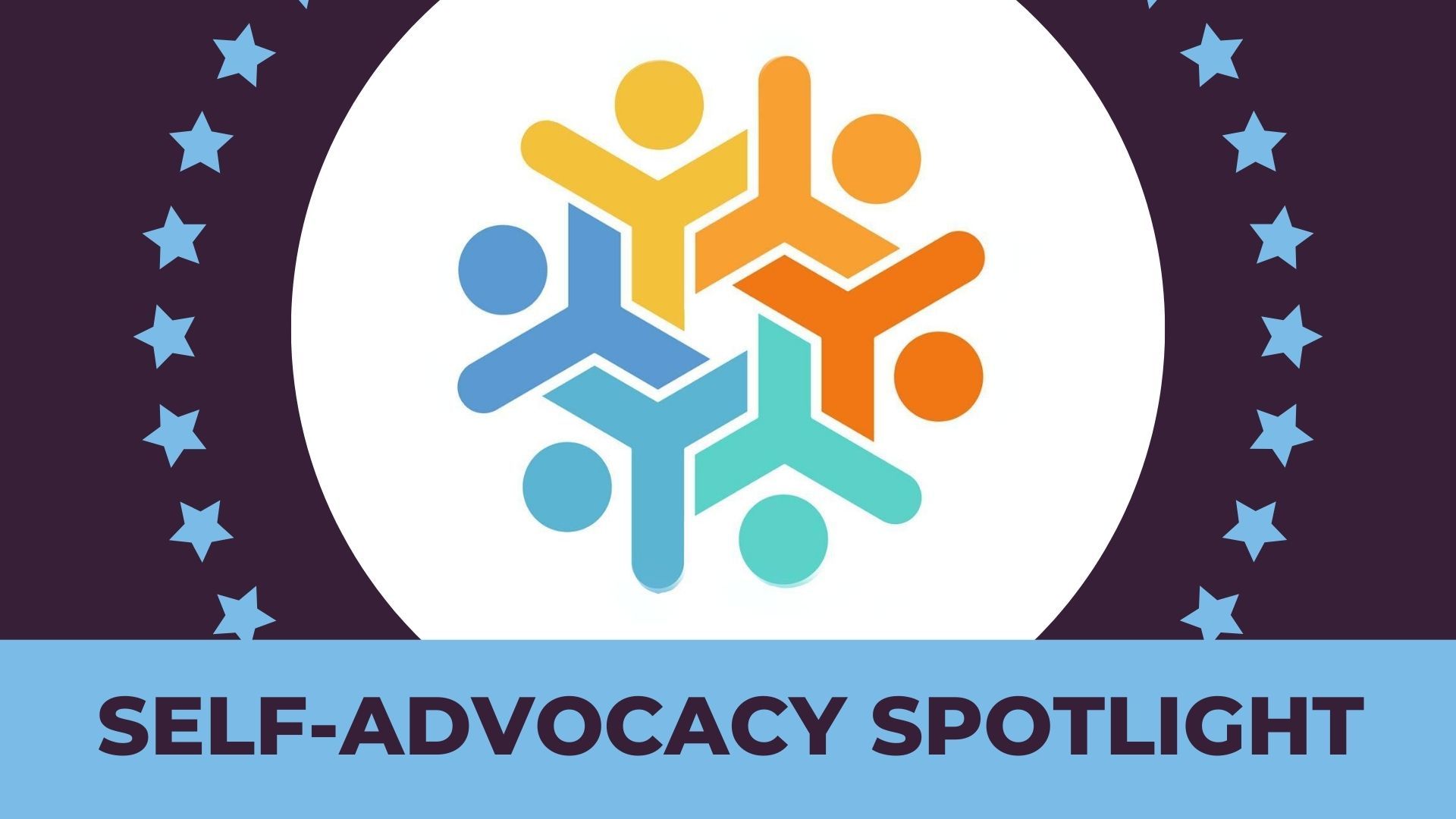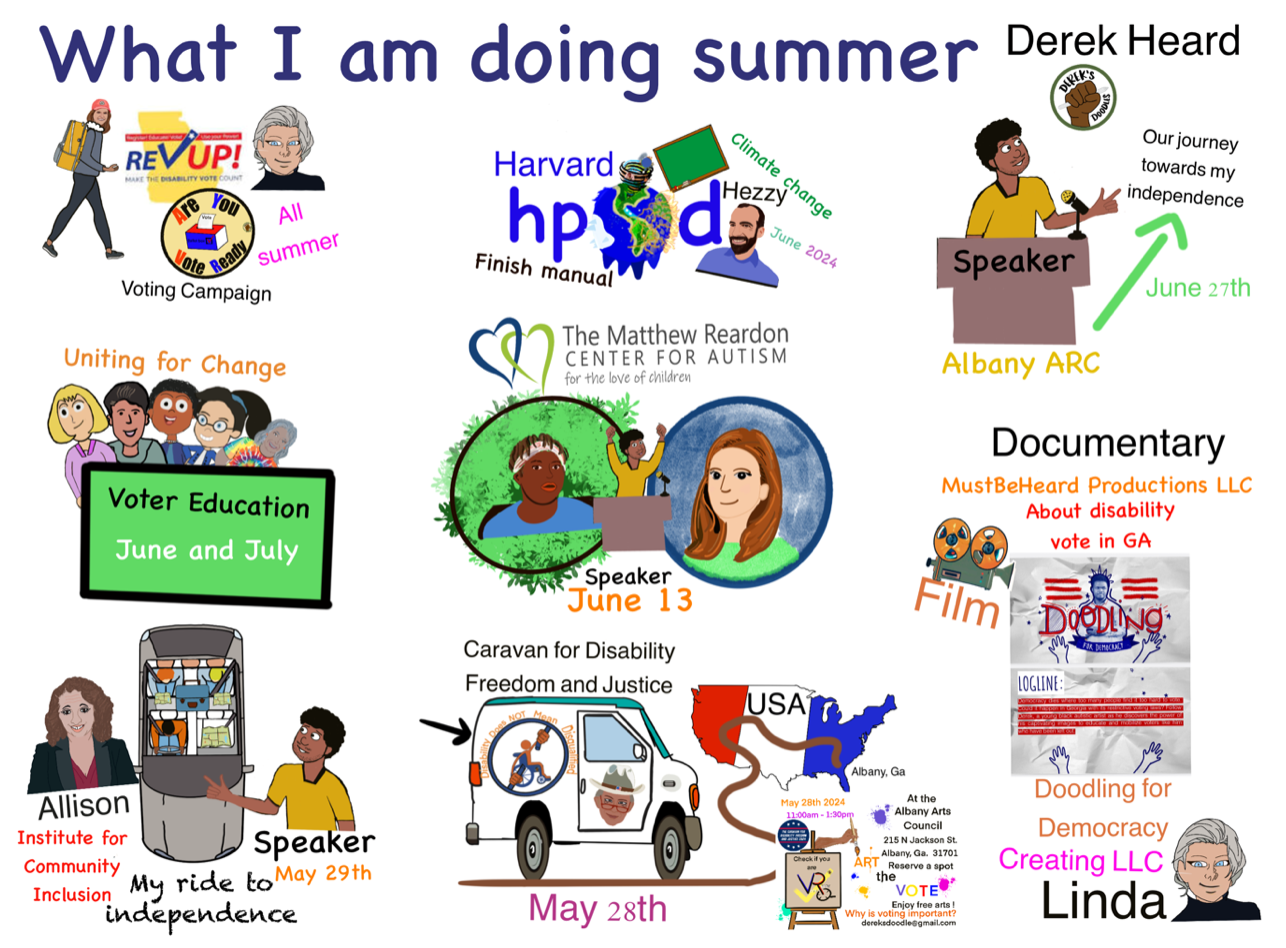June 22, 1999, marks a pivotal moment in the history of disability rights in the United States—the Supreme Court's landmark Olmstead Decision was made into law.
Two Georgian self-advocates Lois Curtis and Elaine Wilson, who lived with developmental and psychiatric disabilities, argued that it was discrimination to unjustifiably isolate people in institutions when they could live in the community. This ruling has significantly influenced the lives of individuals with disabilities, aiming to ensure their right to live in community settings rather than being unnecessarily institutionalized.
Twenty-five years later, the disability community throughout the United States continues to advocate for equality, equity, and inclusion. Considering what the next 25 years can bring, it is important to examine the progress, ongoing challenges, and future direction for community living for individuals with disabilities.
The Olmstead Decision: A Brief Overview
Olmstead v. L.C and E.W., began when Curtis and Wilson reached out to Sue Jamieson at Atlanta Legal Aid in Atlanta, Georgia, to hear their stories.
“They were cycling in and out of state hospitals quite frequently, or they were stuck in state hospitals and they would be released, but to very inappropriate placements that did not do a good job of giving them the services that they needed,” said Susan Goico, Director of the Disability Integration Project at Atlanta Legal Aid.
Goico’s former boss and mentor, Jamieson, met Curtis and Wilson when they were in the state hospital. “And their request was very simple. It was, ‘Get me out of here,’” recalls Goico. “They wanted to live in the community.”
So, Jamieson and some other attorneys at Atlanta Legal Aid filed a lawsuit in federal court based on the Americans with Disabilities Act (ADA). The ADA is a law that prohibits discrimination against people with disabilities.
Within the ADA is a regulation called “the integration mandate.” This is “the part of the law that says that people with disabilities have to receive their services in the most integrated setting, appropriate to their needs,” added Goico. “If you don't need to be in an institution and you can receive your services in the community, then you must receive your services there.”
Based on the mandate, Jameison filed the lawsuit in federal court and won. She then won again when it was appealed.
The case then went to the United States Supreme Court, which affirmed that people with disabilities have a right to services within the community. Additionally, the Supreme Court upheld that the unjustified segregation of individuals with disabilities constitutes discrimination under the ADA.
Justice Ruth Bader Ginsburg, who passed away in 2020, wrote the majority opinion and sided with Curtis and Wilson, changing the law of the land.
The court recognized that people with disabilities have the right to receive state-funded support and services in the community, provided such placements are appropriate, not opposed to by the affected individuals, and can be reasonably accommodated considering available resources and the needs of others receiving state-supported disability services.
“We know that even people with very high support needs can live in the community. It's just a matter of connecting those services to the person and giving the person the choice,” added Goico. “What does the person need, and what does the person want? And those services can be built around a person of their choice.”
“And it's often something that we as lawyers have to grapple with and convince the state of Georgia that our client can live in the community. We know other people with similar support needs living in the community. It takes effort and coordination, certainly, but it can be done.”
Where are we now?
Since the Olmstead decision, there have been notable strides in promoting community integration for individuals with disabilities. Key areas of progress include the following:
- Increased Community-Based Services: Many states have expanded their community-based services and supports, allowing more individuals to live in their communities rather than in institutional settings. Programs such as Medicaid Home and Community-Based Services (HCBS) have been instrumental in this transformation.
- Legislative and Policy Reforms: Various legislative measures have been introduced to support the principles of the Olmstead decision. For example, the Money Follows the Person (MFP) program helps Medicaid beneficiaries transition from institutions to community-based settings.
- Advocacy and Awareness: Disability rights advocates have played a crucial role in raising awareness and pushing for reforms that align with the Olmstead mandate. Public and private initiatives have focused on educating stakeholders about the importance of community integration.
“Olmstead applies to where someone is living, right?” asks Goico. It's an institution versus the community. But it also applies to things like employment services. So, you have to think about what is the most integrated setting for employment.”
Additionally, Goico said that sheltered workshops, where people with disabilities work separately and are exempted from labor standards, would be an Olmstead violation. She continues to cite that segregated school settings, even in certain cases of special education, could be a violation of Olmstead – certainly a school system that segregates children with disabilities from children without disabilities.
“We have certainly spent more money in our state than we used to on community-based services, but there is a long way to go,” adds Goico.
Despite the significant progress, several challenges persist in fully realizing the goals of the Olmstead decision:
- Funding and Resource Allocation: Adequate funding for community-based services remains a critical issue. Many states struggle with budget constraints, which can limit the availability and quality of necessary services.
- Variability Across States: The level of compliance with the Olmstead decision varies widely among states. While some have made substantial progress, others lag, leaving many individuals without the support they need to live independently.
- Systemic Barriers: Institutional bias and resistance to change can hinder efforts to transition individuals to community settings. Ongoing issues related to affordable housing, employment opportunities, and access to healthcare exist.
The State of Olmstead
In Georgia alone, Goico acknowledges the progress after Olmstead. “I think we've come a long way,” she reflects. Georgia no longer has large institutions like Central State Hospital in Milledgeville. “People would remain there all their lives and never have a chance to live in the community.”
Goico added, “Closing some of those institutions was a positive step. And I wonder sometimes [what would happen] if all of the money spent on those institutions was fully absorbed into the community service system.”
Georgia has a 7,300+ person waiting list for the NOW/COMP Waivers, with an average wait of nine years for services and supports.
“The NOW/COMP Waivers support daily activities and give individuals the option to live at home or in a group environment, whichever better suits their needs,” said Ashleigh Caseman, Deputy Director, Office of Medicaid Coordination and Health System Innovation, Division of Strategy Technology and Performance at the Department of Behavioral Health and Developmental Disabilities (DBHDD). “Not only do these programs expand opportunities for individuals with disabilities, but they also aim to alleviate caregivers. It ensures that the caregivers’ loved ones will get the time and attention needed to live more independently – especially as the caregiver ages.”
To support these activities, an important role in the life of a person with developmental disabilities (DD) is their Direct Support Professional (DSP). However, the disability community lacks significant resources for DSPs, such as adequate pay.
Before the COVID-19 pandemic, there was a rising DSP crisis, not just in Georgia but throughout the United States, where individuals with DD were not able to get support for everyday activities. The low pay rate for DSPs in Georgia has caused high staff turnover and inconsistency for families and individuals with disabilities.
After the pandemic, the crisis worsened. And the waitlist to receive services in Georgia continued to grow.
Some Relief on The Way
Last year, the Georgia General Assembly added 500 more waiver slots to the NOW/COMP program. Building upon this investment, the legislature recently approved funding to add 100 more slots to these programs.
While slots are being added to the waitlist, they are insufficient to meet the need. There are simply not enough direct support professionals to provide the services available on the waiver.
But help is on the way. In 2023, DBHDD began reviewing payment rates and policies for services provided through the NOW/COMP Waivers rate study. Burns & Associates, a division of Health Management Associates (HMA-Burns), assisted with this rate study and has developed initial recommendations.
Through a rate study, additional funds will be allocated to DBHDD to support providers with higher DSP wages. The study aimed to understand the current provider rates for staffing support in the DD community and the cost of providing a service.
The NOW/COMP waivers provide various services, such as employment, residential support, and vehicle modifications.
In May 2024, Governor Brian Kemp signed House Bill 916, Georgia's Fiscal Year 2025 budget, into law. This budget includes $105 million to begin implementing the rate increases for intellectual and developmental disability (I/DD) and behavioral health (BH) services based on the latest rate studies. This marks a historic investment in the health and well-being of Georgia’s most vulnerable citizens that DBHDD serves, including people with I/DD.
“The good news is that as more people get access to services, these rates will apply to them as well,” says D’Arcy Robb, executive director of GCDD. “As more people get waivers, it's going to help them too, like a snowball effect. We've got good momentum and have been building on it in the last few years with significant waiver increases.”
The General Assembly allocated 500 waivers last year and 517 the year before. “That was the most [waiver slots] we'd had in about a decade,” added Robb. “At the same time, we have got to keep the momentum going. While the rate study is good news, there are still thousands of Georgians on the waiting list struggling to get by. And an unknown number of people who qualify for services but are not yet on the list. Plus, babies are being born with developmental disabilities all the time, and children are growing up with DD who are not yet on the list. They will all need support to thrive.” In 2024, the General Assembly increased capacity by 100 slots and conducted the rate study.
It had been over a decade since the rates were comprehensively reviewed. While DBHDD conducted sporadic reviews in 2017, and there has been a 3% or 1% waiver increase through the General Assembly, there has not been a comprehensive rate review.
According to The State of the States in Intellectual and Developmental Disabilities report, Georgia’s investment in I/DD services has historically shown lower fiscal effort than other states in the region and only 56% of the national average. Fiscal effort is spending on services per $1,000 in personal income.
With the comprehensive rate review, approximately a $100 million state portion is annualized in addition to the DBHDD base budget. This will provide additional funding to providers to provide better-quality care to the people DBHDD serves.
According to a source at DBHDD, the additional funding and the rates will allow the agency to increase metrics that ensure quality care staff who get paid more funding will be able to provide more quality services – with a direct impact on all of the beneficiaries in the NOW/COMP waivers by way of who their network of available providers are.
This could increase access, quality, options, and choice for the disability community, especially in rural areas of Georgia. The hope is that, with the new rates, providers can draw in new individuals to join as DSPs as a career choice or a job with higher wages.
The long-term vision for DBHDD behind this rate study is that individuals with DD can participate more in their communities because providers will have more funding to build and support a staff that will ultimately benefit the disability community.
Once approved by the Centers for Medicare and Medicaid Services (CMS), this rate study will support Olmstead's foundational promise—that people can live and thrive in the community of their choice with adequate services and support. To learn more about the rate study and its most recent updates, visit DBHDD’s website.
While the rate study is a huge step forward for tackling the DSP rates, DBHDD is working on different projects and ways to address the workforce crisis.
The Wait for Waivers
Many people with DD receive services from waiver programs. These are programs that the CMS allows states to “waive” certain Medicaid requirements and pay for home- and community-based services as an alternative to institutions, such as nursing homes or hospitals for people with DD. Essentially, waivers provide people with DD a choice.
“I think when it comes to the state's investment in Georgians with developmental disabilities and their families, we just really keep pushing the message. Look, we made progress on the waitlist. We made real progress in the rate study,” added Robb. “I think there's a lot of just consistent education and excitement that needs to go on because one of the messages that we try to make sure our lawmakers and our elected leaders are aware of, number one, it's really hard to qualify for a NOW/COMP Waiver.”
The qualifications for a NOW/COMP Waivers are:
- You must already be eligible for Medicaid
- Have a diagnosis of an intellectual disability prior to age 18 and/or a closely related developmental disability, such as severe forms of cerebral palsy, epilepsy, or autism prior to age 22;
- Have significant deficits in adaptive functioning in specific areas; and
- Require the level of care provided in an intermediate-care facility for people with intellectual disabilities.
Additionally, individuals will need proof of citizenship, social security, and Medicaid, as well as relevant psychological reports and/or documents from schools or intermediate care facilities.
“I've been fighting to get my son services,” said Tais Keyser, who is a mother of two sons on the autism spectrum. “This has been going on for five years, trying to get the waiver [for Isaiah].” Keyser’s oldest son Isaiah, now 22, didn’t receive the proper diagnosis, which limited his access to services and supports when he was in school, limiting his growth and potential.
“So it was, for a parent, terrifying because you are asking questions, but you don't know what to do, where to go, where to seek help,” said Keyser. “It was tough because I didn't have a background in disability. I worked in mortgages. So, going from mortgages to disability was a drastic change. When I became a stay-at-home parent, I had to work with my oldest son, and then I'm like, oh gosh, there are some serious issues here.”
When she became a stay-at-home parent and began working with Isaiah, then 11 years old, he was behind on many basic education fundamentals. “He could barely spell his name, doesn't understand, truly understands time, could not do basic math, and they're pushing him into sixth grade,” she said while being told he was meeting milestones.
Without a proper diagnosis and documentation, Keyser started to move the needle on trying to get her son services and supports. She sued the school district to get her son the right services and won. Isaiah has dual diagnoses, and Keyser learned about the NOW/COMP Waivers through her research.
While they are on the waitlist, Keyser has been fighting to get her son's services. Initially, Isaiah was denied services because of the dual diagnosis of mental health and intellectual disabilities.
“I started getting very vocal,” said Keyser, who is a part of the Georgia LEND program. This one-year interdisciplinary training experience prepares tomorrow’s leaders to provide coordinated, culturally competent, and family-centered care to children and their families.
“I just showed up at the Capitol. I heard there was an [GCDD] Advocacy Day, and I had no idea what I was doing here, but I was just going to see what was happening. And then I decided to talk to people and started connecting with GCDD and Rita Young through Unlock Georgia.”
Keyser has applied for services multiple times and has been denied. She has also sued DBHDD to get services in place after proper documentation was provided for her son while on the waitlist.
“We're still waiting to have the waiver, and I'm still fighting,” said Keyser. “I'm still pushing, and I'm not just going to settle down and say, ‘Okay, now that I'm on the list, it's fine’. No, it's not fine. You're supposed to have the waiver the day after you turn 22. My son is 22. I do have some services in place for him, and I don't want to lose those services. And I would've been better had I not had to fight in court and spent five figures fighting these individuals. We would've had more cushion to apply towards services for Isaiah and his middle brother.”
Making Progress
In Georgia, the state of Olmstead decision, there’s progress when it comes to the disability community.
“I think that we've come a long way,” says Goico, referenced earlier in the article. “We don't have some of the big institutions that we used to have in Georgia, where we know people lived in Central State Hospital in Milledgeville and never had a chance to live in the community. So, after the decision, the closure of some of those institutions was a positive step. And, I wonder, sometimes if all of the money that was spent on those institutions were fully absorbed into the community service system, what could our state look like? I think that's something important to think about.”
Goico also heralded the state’s peer support network.
According to Goico, Georgia is a real model for peer support. “We've knocked that out of the park,” she said. “We have such a strong peer support network, which I think we should be very proud of. I also found that peers have lived experience in the system, and the type of support they can provide to others is invaluable. We see that with the mental health system. Assertive Community Treatment teams are supposed to have peer specialists. And to me, that's one of the most important roles on the ACT team itself. What my clients especially find valuable is interacting with peers and receiving support from them. So, if you've heard of the Georgia Mental Health Consumer Network, they do a lot of wonderful training for peers around the state. And again, we're a real leader in that area, and it's something to be very proud of.”
Robb also reflects on the progress made over 25 years. “We're seeing more and more stories of people with hope and able to live lives of their choosing in the community,” she shares.
“I go back to Lois Curtis and Elaine [Wilson]. Lois and Elaine were both women significantly impacted by their disabilities who had spent years cycling in and out of state hospitals. It would've been easy for Lois and Elaine to accept what the world told them: this is your life. You go out on your own, and essentially, when you stumble, when something flares for you, you have to go back to the hospital. They didn't accept that. What's amazing to me is that somehow they had the resilience and the spirit within after being treated that way, who would have the guts to go to an attorney and say, ‘This isn't right. Get me out of here. If I have some support in the community, I can do it,” said Robb.
Of the two, Curtis became more known in the community as an artist and advocate.
Because of the Olmstead decision, states began to invest in home and community-based services. And then, for every person who gets to be in a real home and in the community and shares their gifts, works, volunteers, and makes friends, you have the positive spread of the “oh, that’s possible.”
Robb reflects on a self-advocate who worked in a sheltered workshop but now works in the community, is married, and has three kids. “I'm thinking about one of the advocates, Bruce, we've worked with to end 14c. He was in a sheltered workshop situation, so he was earning less than minimum wage, and he's worked a job in the community, a competitive job, for years.”
“When we invest in our community, we get a return on the investment,” said Robb. “We get a stronger Georgia, and we get citizens with disabilities and their families, who are robust parts of our communities and our economy. That's what we're missing when we underinvest in this community.”
The Voice of Advocates
Olmstead stands behind the Americans with Disabilities Act (ADA), the landmark disability rights movement that became law in 1990. This year, it celebrates its 34th anniversary on July 26th. Through advocates and the power of advocacy, the ADA set the tone for inclusion and equity for people with disabilities to be included in everyday life.
And the Olmstead decision allowed the community to learn what it looks like when people with disabilities can have a choice.
“There's such an opportunity for people with disabilities to be independent in their lives,” said Charlie Miller, GCDD Public Policy Director. “Once they are in their communities, they are going to go to the grocery store, they are going to see a movie, they're going to the mall… they're going to invest in their communities. And that's one of the promises that I believe that the Olmstead decision gives us.”
Advocates have been working with GCDD in Georgia to raise awareness of waivers and the need for higher wages for DSPs. Through its signature advocacy event, GCDD’s Advocacy Days, the agency and advocates throughout Georgia have educated and informed lawmakers each year during the legislative session on various topics focused on disability, including the need for more waivers and wage increases.
“There are so many great things we're doing within advocacy in Georgia, specifically at GCDD,” adds Miller. “We're making big strides to ensure legislators understand it's not just a disability issue. It is an everybody issue because the more opportunity we have to get people with disabilities out in the communities, the better it can be for the state and a community.”
Through advocacy, successes like the rate study have been possible.
“We give a nod to the families because they helped make this move,” said a source at DBHDD. “Advocates, families, providers, GCDD and DBHDD, we all banded together to make this happen. State advocates, stakeholders, families, and providers coming together had everything to do with this getting moved forward. There's never been this level of investment in these waivers on rates and wages ever since the inception of the waivers.”
This advocacy and investment is important to make community living a reality for people with DD in the state.
“We as an advocacy community have to keep shining a light on the people and educate them about Olmstead or understanding that they have a right under the ADA,” said Goico. “We have to shine a light, and we have to keep beating the drum that this is a civil right for people with disabilities. And [advocates] have to stand up and say, ‘I have a right to these services in the community, and I'm not going to accept less.’”
Advocacy takes many different forms. It doesn't always involve showing up at the capitol and talking to legislators about a certain bill.
“Advocacy can start in your community,” adds Miller. “It can start as just saying if they're going to church. If they're going to church asking, ‘Hey, do we have a special service where it is designated for people with disabilities? Is there an opportunity to where there is a respite in our church for families with disabilities to be involved?’”
Miller further explained that it can be a lot simpler than that. “Seeing other people with disabilities there, just say hello to them,” he said. “The moment you start a friendship, it can grow into anything you want. I think that families, neighbors, and community members all have an opportunity to play a part and make sure the future is as accessible as possible, but also to make sure other people with disabilities have an opportunity to be in our community.”
The Next 25 Years
If there were a crystal ball to look into the future, there would be a vision of an ideal world with Olmstead and the ADA at the helm. The disability community, you can say, works with the ambition of what a normal life in the community could look like with the right supports and services.
“I hope when we get to Olmstead’s 50th anniversary, we have taken the pity out of the experience of disability,” reflects Robb. “I hope that having a disability will no longer be looked on by so many people as a limiting thing and a bad thing that it will just be looked upon as this is a part of your life.”
When asked the same question, Miller got teary-eyed and reflected on his childhood. “I dream of a day where a young person with a disability doesn't feel like he's not included. That has to be the most powerful thing.”
He shared a story about a game of tug-of-war in fifth grade on Field Day. In the game, he got thrown out of his wheelchair and dragged to the ground. His physical therapist and the occupational therapist, naturally, got scared and felt that they were never going to live this down. As they approached Charlie, they saw him laughing on the ground, covered in dirt.
“I was having such a good time because I was included,” said Miller. “I didn't feel like I was the referee. I was included in my own community.”
Bonus content! Listen to our PinPoint podcast!
Learn more about the impact of the Olmstead Decision. Listen to our podcast, 25 years since Olmstead: Has it made a difference?
https://open.spotify.com/embed/episode/0qJNf3YFeOxzHPw7KwVpZ6
PinPoint focuses on the stories of Georgians with developmental disabilities and how policy, community, and societal issues can impact their everyday lives. The podcast is produced by the Georgia Council on Developmental Disabilities and is a part of its quarterly magazine, Making a Difference.
 D'Arcy Robb, GCDD Executive Director
D'Arcy Robb, GCDD Executive Director